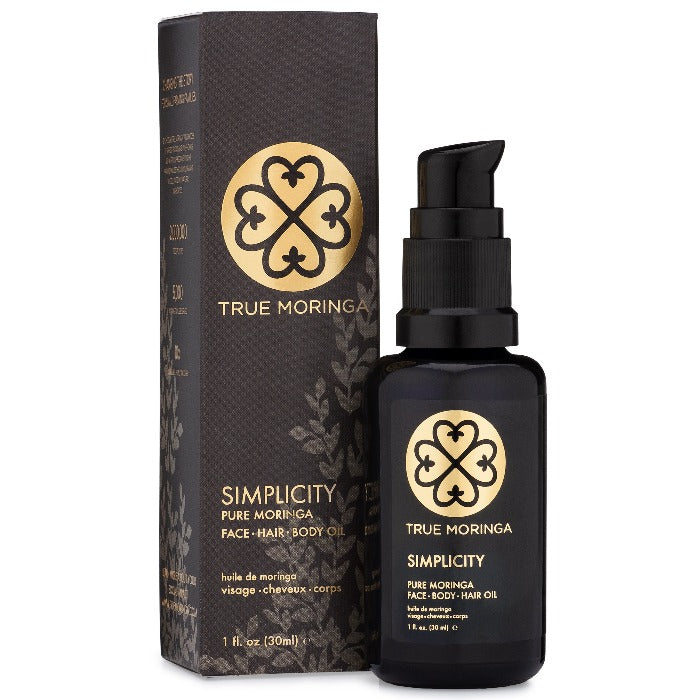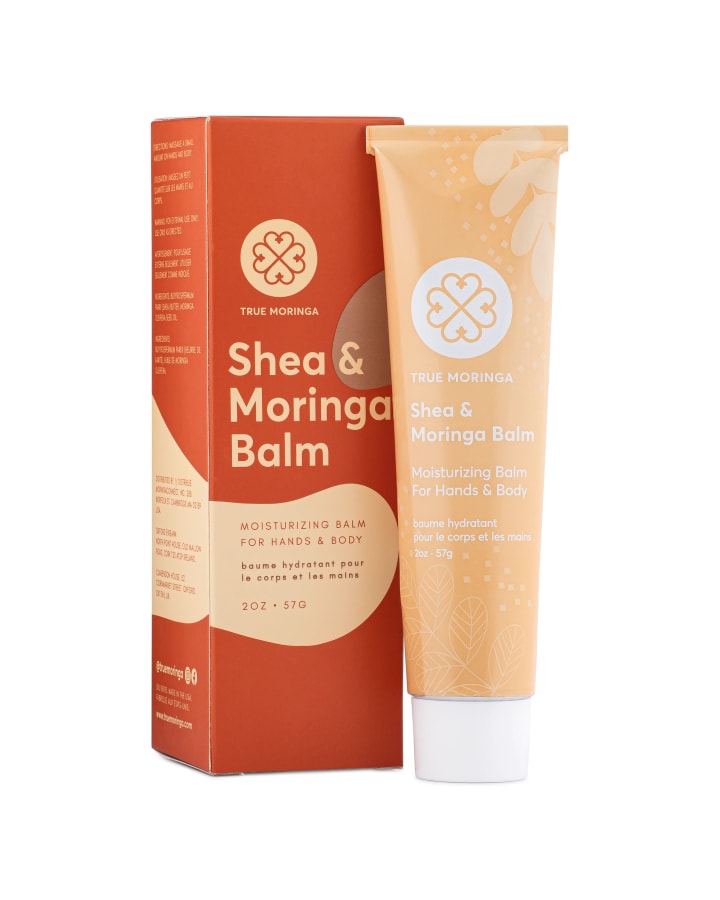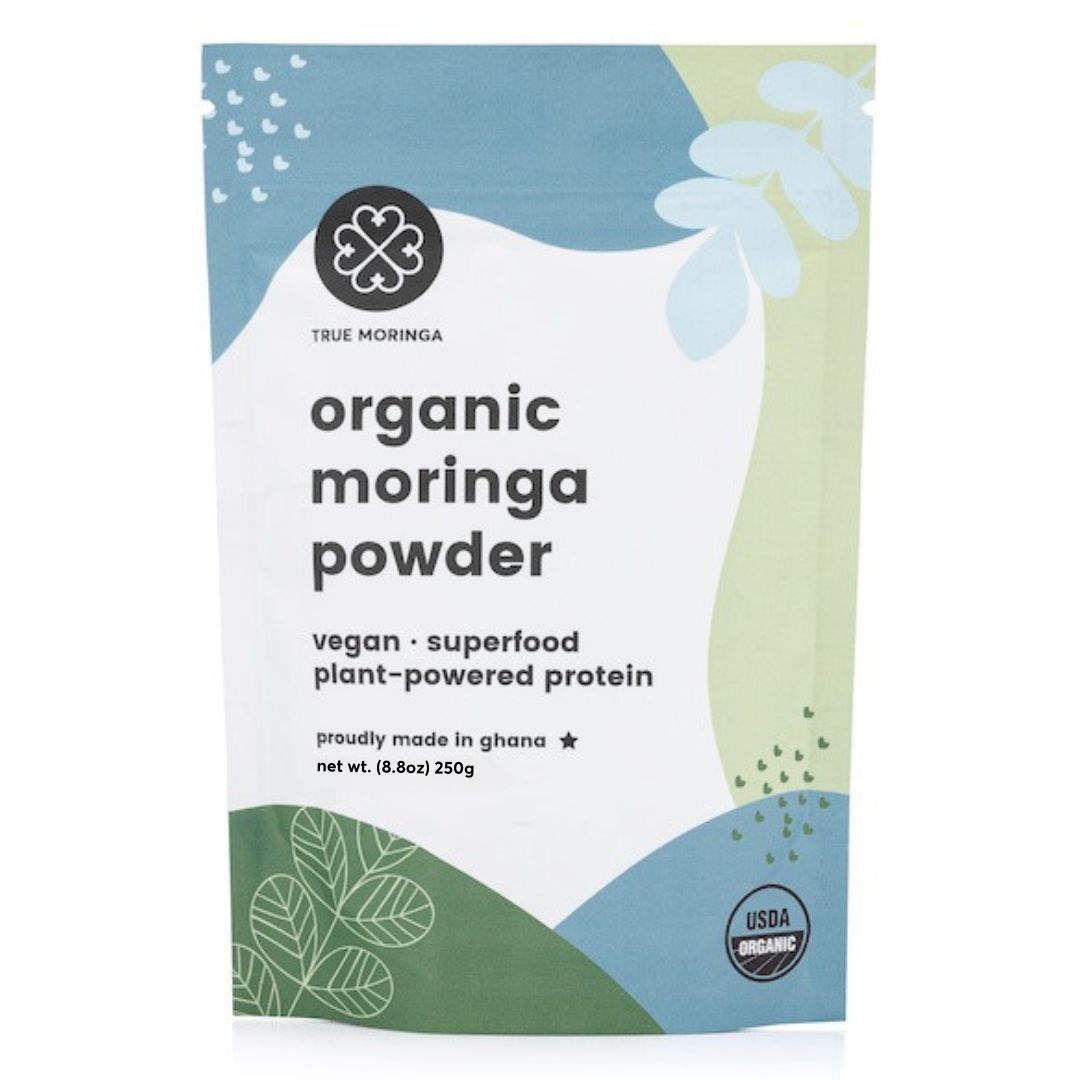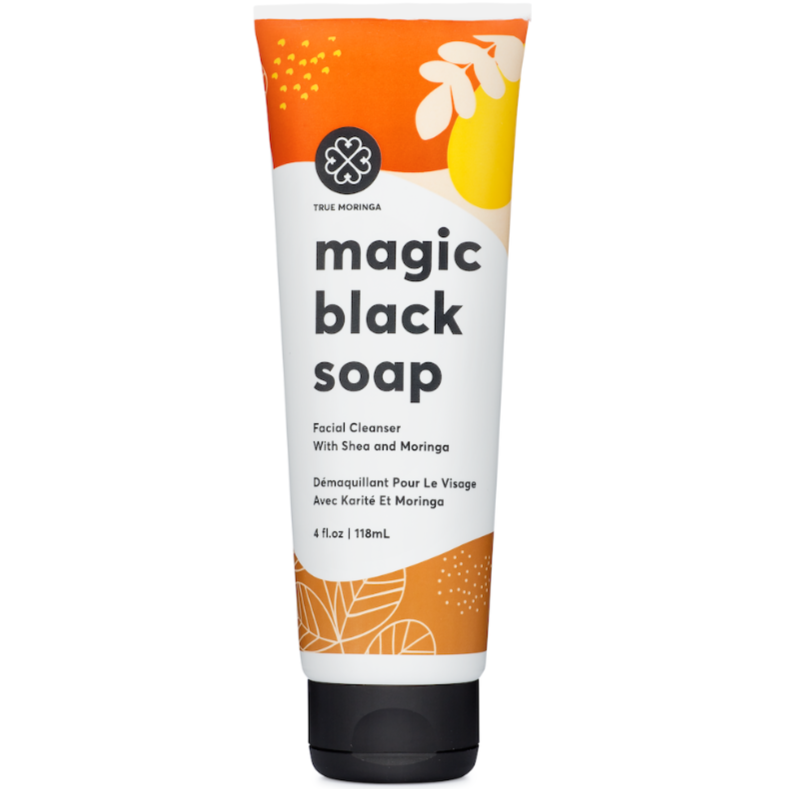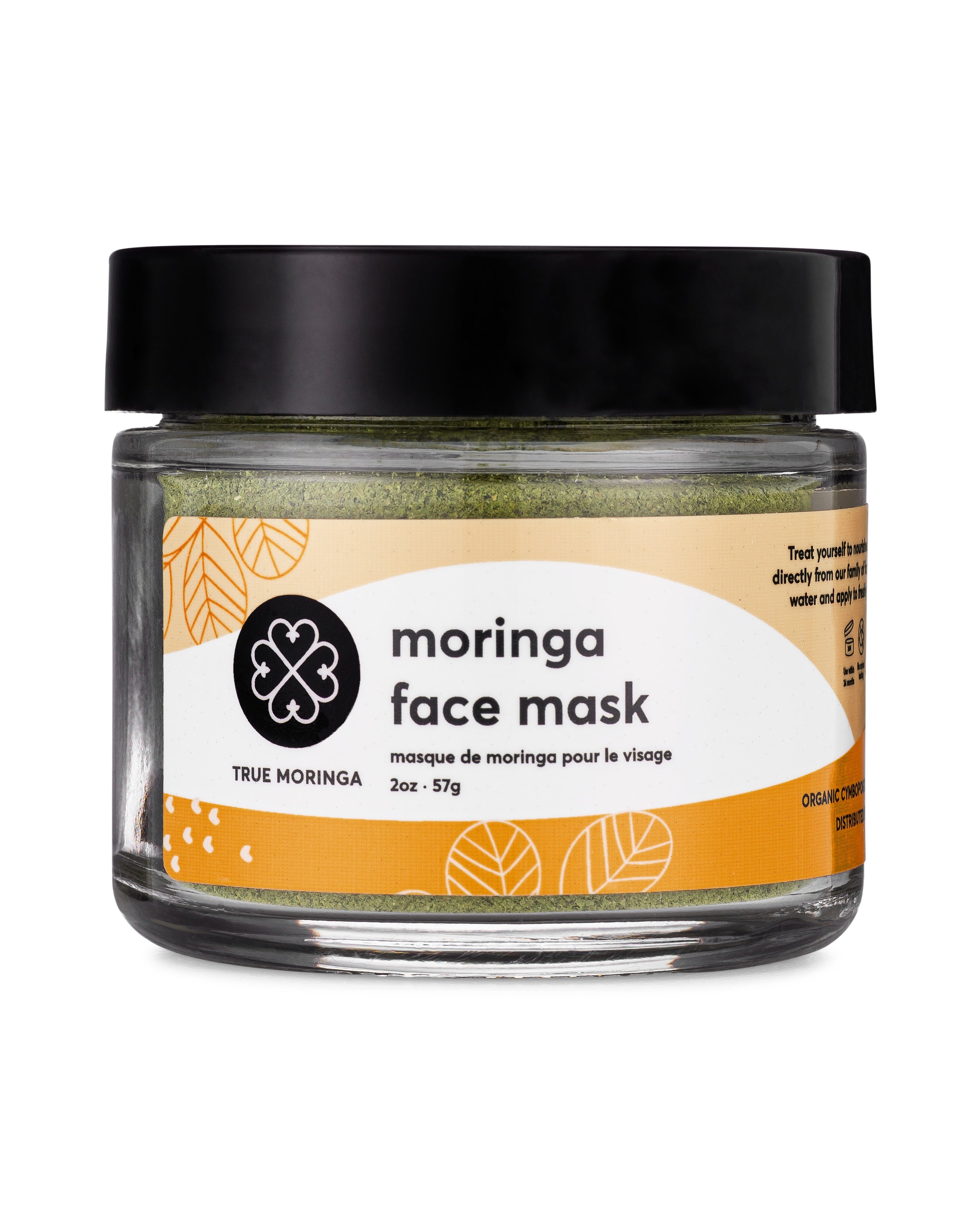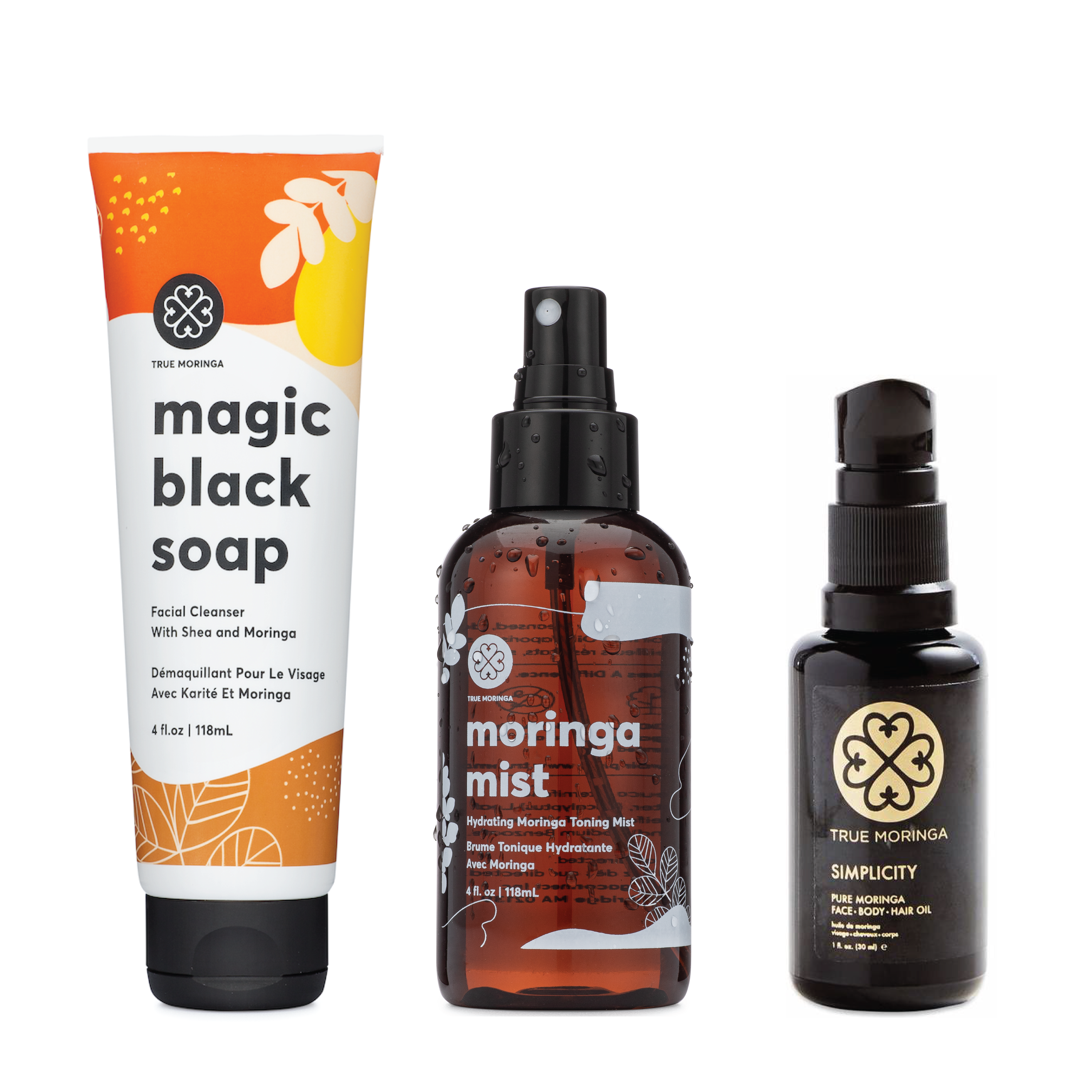


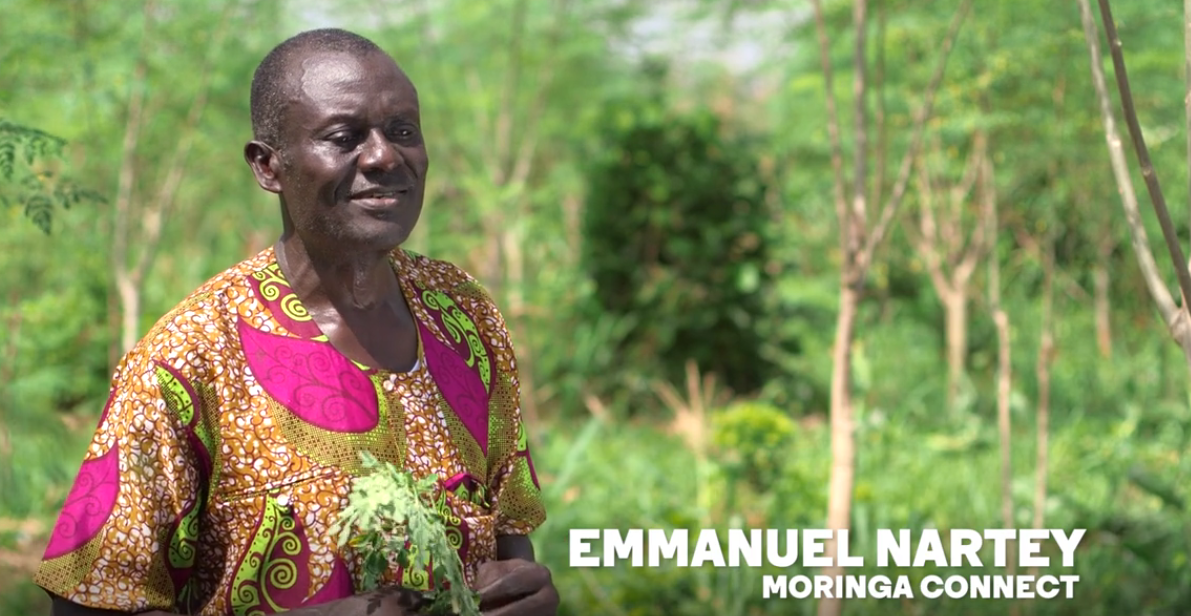
What Makes our Supply Chain Different: A Conversation With Emmanuel Nartey
As we embark on our quest to plant one million moringa trees this year, we thought we'd share some behind-the-scenes stories from our farmers those who make our vertical supply chain work to bring you cold-pressed moringa oil and moringa-powered skincare every day.
For a first-hand perspective on the impact of the miracle moringa tree in Ghana, I spoke with Emmanuel Nartey of MoringaConnect (our parent company), one of our agricultural extension officers who works directly with our moringa farmers to provide the tools and trainings they need to thrive (and grow high quality moringa seeds and leaves).
After studying Agriculture and the Preservation of Biophysical Resources at the University of Ghana Farms, Kade, Emmanuel has been working with the Peace Corps as a supervisor to Agriculture Volunteers for over a decade. In addition to studying traditional agricultural sciences like tree crop management and soil conservation, Emmanual is interested in expanding his horizons to newer techniques, and even told me he’s currently raising snails in addition to poultry, rabbits and bees.
How is moringa impacting people’s lives in Ghana?
In Ghana, people are already fairly familiar with the benefits of eating moringa leaves. A big part of my earlier work included training women to use the leaves in food preparation—especially pregnant and lactating mothers, as it’s high in nutrients and increases milk production.
More recently, people are realizing economic and environmental benefits as well. People can make a lot more money from the seeds, which are used in oil production, than from the leaves alone. Moreover, moringa is drought tolerant and can be grown on plots of land that aren’t suitable for food crops. Moringa also has a very short gestation period (bears fruit after only 8 months, compared to cocoa which takes 3-5 years), so farmers are able to earn a good income, quickly, and on land that would otherwise be considered useless.
What is your role as an Extension Officer with MoringaConnect?
As an Extension Officer, I work directly with smallholder farmers, training them in best practices for growing moringa, and troubleshooting with them on agriculture issues they experience on their farms. I also advise MoringaConnect on how to specialize their programs so that they are uniquely relevant to the different regions in which they work.
What is MoringaConnect’s role in expanding moringa production in Ghana?
When MoringaConnect first arrived here it was difficult for them to gain trust with Ghanaian farmers. We’d had issues where foreign companies came in the past and convinced farmers to grow sunflowers, but when it came time to buy them back, no one ever showed up. Once MoringaConnect proved to us that they were here to stay, people gained confidence in the company as well as the product.
Now a big part of what we’re doing is trying to develop higher yielding seeds. The Extension Officers and farmers study the trees and save the seeds from the highest yielding to replant the following season.
MoringaConnect is also encouraging farmers to plant completely organically, which is uncommon here. Because a lot of the soil here is low in nutrients, most crops can’t be grown without pesticides and fertilizers, but because moringa is such a hearty crop, and is resistant to many local pests and crop diseases, farmers are realizing that it can be grown in a much more eco-friendly manner.
Stay tuned for more updates from the field this year and make a purchase through True Moringa or our sister brand Minga Foods to plant a moringa tree in your name.

